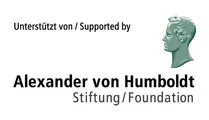
Welcome to the 2014 Munich Workshop on Information Theory of Optical Fiber (MIO 2014)!
On December 10-11, 2014, the TUM Institute for Advanced Study (IAS) and the TUM Institute for Communications Engineering (LNT) are organizing a Munich Workshop on Information Theory of Optical Fiber. The workshop is funded through a TUM-IAS Hans Fischer Senior Fellowship for Frank Kschischang and a TUM-IAS Rudolf Diesel Fellowship for René-Jean Essiambre.
Optical fiber is a technology that enables low-cost and long-distance communication networks such as the Internet. Due to a rapidly increasing traffic demand, today's fiber-optic networks face a looming "capacity crunch" that has spurred researchers to try to understand the factors that limit capacity. One alarming observation is that, in contrast to linear channels, the capacity cannot be increased by increasing power due to the combined effects of noise, dispersion and nonlinearity. Despite much past work on the capacity of optical fiber, the problem is not yet solved.
This workshop brings together leading scientists working on the information theory of optical fiber, with the aim of exploring new ideas and advancing understanding. The workshop will promote interaction and collaboration among experts working on different aspects of the topic.
Participants are invited to give 30 minutes talks related to the workshop topic.
Flyer: available here
Directions to the Workshop Room N2408
For directions, please see this link
List of Participants
- René-Jean Essiambre (Alcatel-Lucent, Bell Labs)
- Amirhossein Ghazisaeidi (Alcatel-Lucent, Bell Labs)
- Laurent Schmalen (Alcatel-Lucent, Bell Labs)
- Sergei Turitsyn (Aston University)
- Erik Agrell (Chalmers University of Technology)
- Metodi Yankov (Technical University of Denmark)
- Darko Zibar (Technical University of Denmark)
- Luca Barletta (TUM)
- Georg Böcherer (TUM)
- Tobias Fehenberger (TUM)
- Norbert Hanik (TUM)
- Gerhard Kramer (TUM)
- Mansoor I. Yousefi (TUM)
- Ronen Dar (Tel Aviv University)
- Meir Feder (Tel Aviv University)
- Mark Shtaif (Tel Aviv University)
- Aris Moustakas (University of Athens)
- Berthold Lankl (UniBw Munich)
- Alex Alvarado (University College London)
- Polina Bayvel (University College London)
- Cristian Antonelli (University of L'Aquila)
- Antonio Mecozzi (University of L'Aquila)
- Stephan ten Brink (University of Stuttgart)
- Frank Kschischang (University of Toronto)
Organizing Committee
Gerhard Kramer, Mansoor I. Yousefi, Luca Barletta, Tobias Fehenberger
Program: December 10
| 09:00 | Arrival + Coffee |
| 09:30 | Mansoor I. Yousefi: "Kolmogorov-Zakharov model for optical fiber communication" |
| 10:00 | Sergei Turitsyn: "Nonlinear communication techniques for fibre-optic channels" |
| 10:30 | Coffee Break |
| 11:00 | René-Jean Essiambre: "Overview of the nonlinear Shannon capacity limit in fibers" |
| 11:30 | Cristian Antonelli, Antonio Mecozzi: "Space division multiplexing for the future transport networks" |
| 12:00 | Lunch |
| 13:30 | Luca Barletta: "Information-theoretic results for phase noise channels" |
| 14:00 | Darko Zibar: "Application of machine learning techniques for amplitude and phase noise characterization" |
| 14:30 | Coffee Break |
| 15:00 | Georg Böcherer, Tobias Fehenberger: “LDPC coded modulation with probabilistic shaping for optical fiber systems" |
| 15:30 | Ronen Dar: "Modeling the nonlinear fiber-optic channel" |
| 19:00 | Dinner |
Program: December 11
| 09:00 | Laurent Schmalen: "Code design for channels affected by phase slips" |
| 09:30 | Alex Alvarado: "On soft FEC for optical channels: is the “FEC limit” a good predictor of post-FEC BER?" |
| 10:00 | Coffee Break |
| 10:30 | Aris Moustakas: "Nonlinear Fourier transform for fiber-optic communication" |
| 11:00 | Metodi Yankov: "Increasing the reach of the Fiber-optic channels by Probabilistic Shaping of QAM constellations" |
| 12:00 | Lunch |
Supported by
